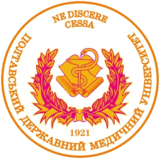Please use this identifier to cite or link to this item:
http://repository.pdmu.edu.ua/handle/123456789/20263| Title: | Immunological and inflammatory effects of infectious diseases in circadian rhythm disruption and future therapeutic directions |
| Authors: | Huang, Helen Mehta, Aashna Jacob, Kalmanovich Anand, Ayush Bejarano, Maria Chilo Garg, Tulika Khan, Nida Тonpouwo, Gauvain Kankeu Shkodina, Anastasiia D. Bardhan, Mainak Шкодіна, Анастасія Дмитрівна |
| Issue Date: | 19-Jan-2023 |
| Publisher: | Springer |
| Citation: | Immunological and inflammatory effects of infectious diseases in circadian rhythm disruption and future therapeutic directions / H. Huang, A. Mehta, J. Kalmanovich [et al.] // Molecular Biology Reports. – 2023. DOI: 10.1007/s11033-023-08276-w. |
| Abstract: | Background Circadian rhythm is characterised by daily variations in biological activity to align with the light and dark cycle. These diurnal variations, in turn, influence physiological functions such as blood pressure, temperature, and sleep–wake cycle. Though it is well established that the circadian pathway is linked to pro-inflammatory responses and circulating immune cells, its association with infectious diseases is widely unknown. Objective This comprehensive review aims to describe the association between circadian rhythm and host immune response to various kinds of infection. Methods We conducted a literature search in databases Pubmed/Medline and Science direct. Our paper includes a comprehensive analysis of findings from articles in English which was related to our hypothesis. Findings Molecular clocks determine circadian rhythm disruption in response to infection, influencing the host’s response toward infection. Moreover, there is a complex interplay with intrinsic oscillators of pathogens and the influence of specific infectious processes on the CLOCK: BMAL1 pathway. Such mechanisms vary for bacterial and viral infections, both well studied in the literature. However, less is known about the association of parasitic infections and fungal pathogens with circadian rhythm modulation. Conclusion It is shown that bidirectional relationships exist between circadian rhythm disruption and infectious process, which contains interplay between the host’s and pathogens’ circadian oscillator, immune response, and the influence of specific infectious. Further studies exploring the modulations of circadian rhythm and immunity can offer novel explanations of different susceptibilities to infection and can lead to therapeutic avenues in circadian immune modulation of infectious diseases. |
| Keywords: | chrono-immunology circadian rhythm infectious diseases molecular clocks melatonin inflammation immune response |
| DOI: | 10.1007/s11033-023-08276-w |
| URI: | http://repository.pdmu.edu.ua/handle/123456789/20263 |
| Appears in Collections: | Наукові праці. Кафедра нервових хвороб |
Files in This Item:
| File | Description | Size | Format | |
|---|---|---|---|---|
| Immunological_and_inflammatory_effects.pdf | 1,99 MB | Adobe PDF | View/Open |
Items in DSpace are protected by copyright, with all rights reserved, unless otherwise indicated.



